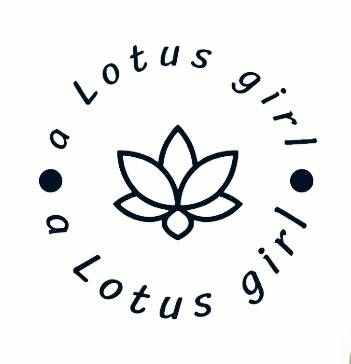
What is the meaning of life? Is our goal to live longer or to find a higher purpose? Why do some people know their purpose and passion in life while the rest are drowning in confusion? What is the secret to a long and happy life? The questions above are ones we’ve all pondered, and many still seek satisfying answers to them. Though broad and fundamental, readers will be surprised to find the answers come from a single source! Let’s dive together in today’s post; Feeling Lost in Life? Discover Your Ikigai Today!
Two writers asked themselves these questions out loud and decided to take a journey to find answers. Indeed they returned with Ikigai: The Japanese Secret to a Long and Happy Life, a key self-development book. The authors noted that the largest part of the world’s highest life rates is on the Japanese island of Okinawa. What secret do the residents of this island, marked by historical events and WWII suffering, hold?
Now, dear reader, let me share with you what this great book taught me. Enjoy Reading!
About Okinawa
If we want to know the Okinawans’ secrets for living a comfortable life and maintaining happiness and good health after turning 100, we must, therefore, know more about their surroundings. This is precisely what the two writers presented throughout the pages of their book, as they studied the region both geographically and socially, as well as intellectually. “Okinawa Prefecture is a chain of islands in the Pacific Ocean and the East China Sea south of the island of Kyushu”. In additional to it’s warm climate and unique culture, the amazing nature of Okinawa Prefecture has a major impact on the healthy diet followed by its residents, as they rely on fish as their primary source of meat.
The authors also noted that Okinawans feel completely connected to their community, which they work to serve. In addition, locals enjoy being social and engage in many activities and celebrations together, which, as we will see later, plays a big role in the residents’ living a comfortable life.
Finally, according to the book, the most widespread religion in Okinawa is “Ryukyu Shinto”. This religion combines teachings from various faiths, including Shintoism, Buddhism, Taoism, and Confucianism. These teachings form the basis of the Okinawans’ beliefs in their daily lives and help to organize them.

What is the meaning of life?
Ikigai
After many interviews with older Okinawans, the book defines its title as raison d’être. This term refers to the reason you wake up each day and pursue your activities with enthusiasm and vitality.
Returning to our basic question: “What is the meaning of life?” The answer is unique to each person, so you must discover it for yourself. But what we can agree on is that there is no life without purpose.
How to find you purpose of life

Ikigai is the point where multiple elements converge: passion (what you love), career (what you are good at), mission (what the world needs), and career (what you can be paid to do). These elements are what ensure that you can practice what you love and are good at to help your community and be considered a job that you can make money by doing. Many still doubt this, saying, “Do what you love only as a hobby”. In interviews with Okinawans aged over 100, some shared their ikigai. For instance, some found joy in serving and helping others, while others enjoyed farming, art, and various other activities.
How to find your Ikigai
Well, these elements that we mentioned previously are absolute and general, so how can we find our ikigai through practical steps? Thus, the authors aimed to highlight an important concept for finding our ikigai: flow.
Going with the flow
The book describes the process of going with the flow as a state of complete immersion and harmony with your experience. In this state, you can achieve peak concentration, as you are free from distractions and intrusive thoughts.Your ego dissolves and you become one with what you do. We all have activities that make us lose track of time, feeling present in the moment forever. This may be while reading, drawing, playing music, watching a movie… The power of flow is manifested by the person’s experience of pleasure, joy, and creativity in addition to his precise concentration during doing something. Read more about enjoying your daily life by reaching the state of flow here.

We can practice flow in our daily lives while doing our simple tasks, and this can be practiced through meditation. As for answering the question: How can we find our ikigai through flow? It is simply experiencing as many activities as we can get into a state of flow while doing them. Then, we can identify what we love and have a passion for doing, so we strive to become professional in it, practice it as a profession, and help our society through it. Now if a person has something to live for, he will want to live for a long time, right? How can this be achieved?
The 10 Ikigai rules for long and happy life

First: Stay active and don’t retire
You will be surprised to learn that the Japanese do not have the word “retirement” in their language. If you are doing a job that you truly love, you will not want to leave it in the first place! If you retire, you will leave behind what you live for. In addition, the book mentioned the importance of continuity of work and learning new skills that keep your mind active by creating more neural networks. A healthy body is a healthy mind.
Second: Do not rush, take it slowly
The truly happy person is the one who is happy in the present and not the one who always plans for his happiness in the future. So accept reality, stop rushing and running toward the future, and find happiness in your present. Living in a time full of development and technology, keeps us in a constant state of alert, distraction, and anxiety, especially from the ringing of hundreds of phone notifications. Times a day, from advertisements to emails, etc. Studies have proven that stress causes serious disturbances in the human body and kills it over time. Slow down and get away from the constant state of stress by practicing meditation
Third: Do not fill your stomach
The Japanese have an ancient custom called “Hara Hashibo,” which requires them to stop eating after filling their stomach 80%. Indeed, you cannot know exactly when you have filled your stomach 80%, but it is simply the case when you feel full but can still eat more.
Other than that, Okinawans have other healthy eating habits, such as not eating sugar, which is considered the number one cause of aging faster. They also eat a lot of various vegetables and fruits every day, in addition to many foods that delay aging (such as tofu, and miso…). They also eat their food in small plates, and they feel full when they finish eating it without filling themselves. Acquire some healthy eating habits for a long life.
Fourth: Surround yourself with good friends
As we mentioned earlier, good social relationships occupy a large place in the lives of older Okinawans. They engage in many activities together such as celebrating birthdays, going to karaoke, attending dance classes, drinking tea together… So what you have to do is get out of your comfort zone and meet many people, helping them if possible will bring you a sense of satisfaction.

Fifth: Move constantly
Although they are over 100 years old, the older Okinawan population continues to be very active, with almost all of them sharing a farming hobby that keeps them busy and on the go. In addition, most of them practice many exercises that have spread over the years in Japan, such as Taiso, yoga, tai chi, and qigong. So that all of these exercises are considered easy to practice and aim for self-development, harmony with human nature, prevention of depression, and stimulating blood circulation in the body, in addition to many health benefits other than the secretion of happiness hormones when exercising.
Sixth: Smile
A cheerful personality is not only relaxing but also helps in making friends. Stop magnifying what comes your way in life and focus on what is important, your ikigai, instead of what is urgent. And always remember the endless good possibilities for developing yourself.
Seventh: Reconnect with nature
Perhaps one of the reasons for the Okinawans’ keen interest in nature is, indeed, their belief in the existence of spirits in some of its elements. Furthermore, they believe that the gods love and bless those who take care of nature. You must constantly recharge your energy from nature, of which humans are a part, despite your busyness in your daily life.
Eighth: Keep giving thanks
Feel grateful for the moment you live, the people you love, and the nature that embraces you. According to Buddhist and Taoist beliefs, a wise person appreciates and enjoys pleasures without becoming attached to them. He must always remember that everything is fleeting. Rather, he must use this knowledge to live with it instead of rejecting it and allowing it to cause him pain. Instead, he should focus on the things he can control and stop worrying about what he can’t control. Do this and you will notice how your happiness will increase
Ninth: Live in the moment
The Japanese have Wabi-Sabi and Ichi-Go Ichi-e beliefs, which are based on loving the imperfect things in the world that surround us and finding beauty in them. In addition, it is based on living the present moment and embrace it, as it will not happen again, and not allowing the past and future to burden a person through fear and regret.
Tenth: Follow your Ikigai
There is a passion, a talent, an ikigai within you that gives your days meaning, so follow it and maintain it. If you don’t know what it is yet, your mission is to discover it
And we have reached the end of this article. I hope you have enjoyed it. If you liked the topic, write to us in the comments for more similar content. Additionally, share with us what your ikigai is in the comments!
Join Our Newsletter
Join our newsletter for free and enjoy more inspiring content!
Resources:
https://www.nippon.com/ar/guide-to-japan/pref47
Read more:
About other Categories:


Leave a Reply